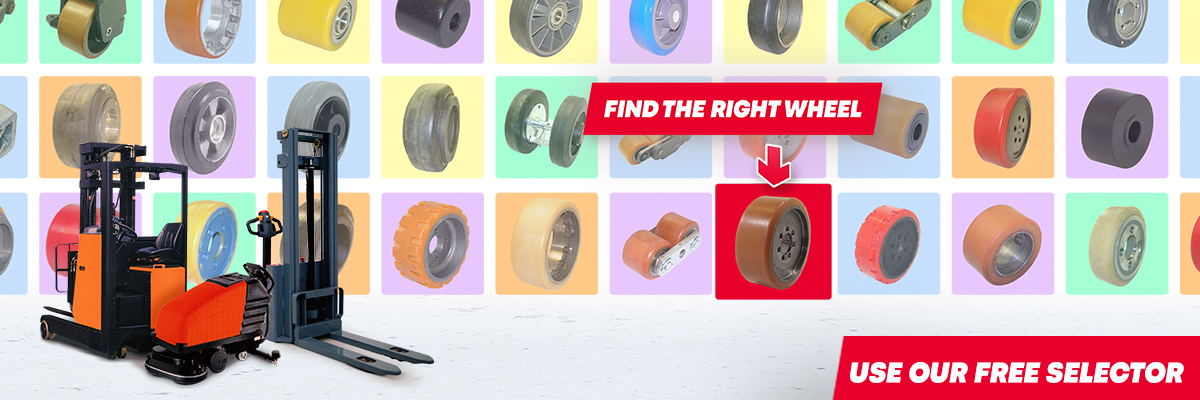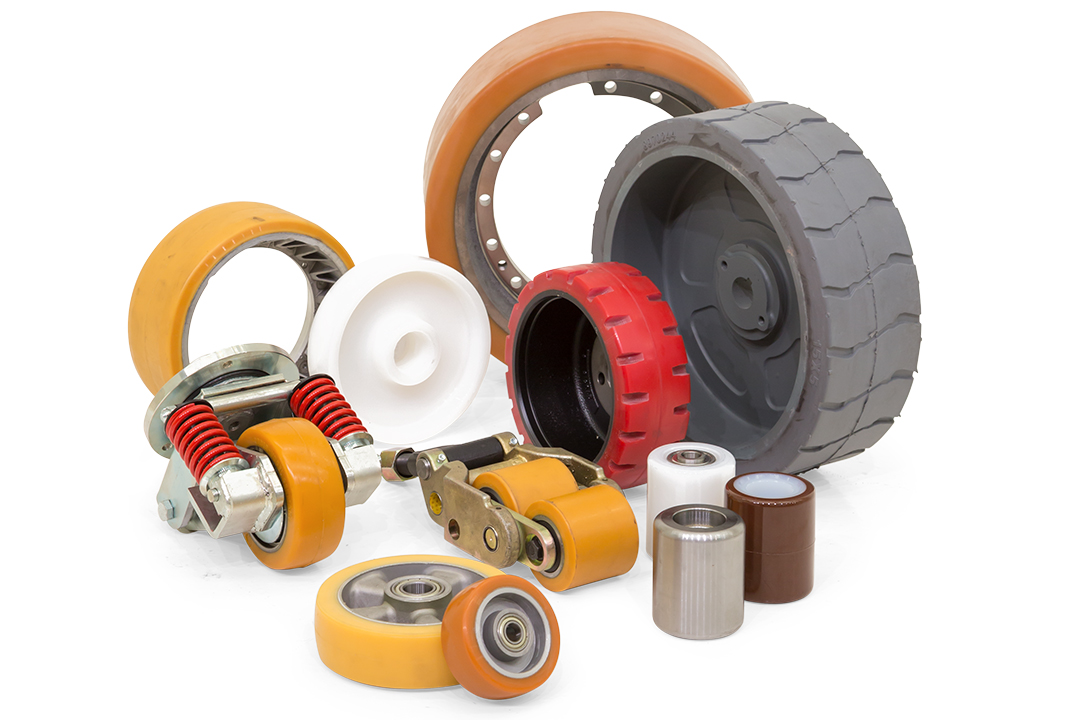Save time and money by choosing the right wheels

Reading time: 4 minutes
A wheel is a round thing that’s mounted on your machine allowing rapid movement. Sounds very simple, doesn’t it? Well, yes and no: choosing and finding the right wheel is slightly more complicated. External factors such as temperature, humidity, and the intensity of the work must also be taken into account.
In addition, wheels come in many forms and materials. And it’s easy to choose the wrong wheels if you don’t know what you’re looking for. This can result in the following:
- The wheels you choose aren’t suited to the application and will break down quickly. This means more downtime for your machine and a higher cost of replacement.
- The wheels you’ve chosen are overqualified for the application and will cost you more than necessary. Why pay more when a cheaper wheel will do the same job?
- You’ll have trouble doing your work as underperforming wheels can slow you down, have no grip on the floor, and so on.
Either way, it comes down to one thing: Finding the right wheels will save you time and money.
So which external factors do you have to consider?
- Intensity of the work:
- How much weight is your machine carrying?
- How long is your machine in operation? (more or less than 8 h a day?)
- How is it driven? Do you have to brake or accelerate a lot?
- Environmental
- What’s the temperature where your wheels have to operate?
- What’s the level of humidity?
- Type of floor:
- What type of floor are you working on? (e.g. concrete, asphalt)
- Do you need extra grip to drive on your floor?
- Is the floor you’re working on wet?
- Are there oil spots on the floor?
- Industry:
- Do you need antistatic wheels? (e.g. electric power industry, petrochemical industry)
- Do you need wheels suitable for cold storage? (e.g. food industry)
- Do you need non-marking wheels? (e.g. exhibition centres, food industry)
Not sure which wheels are suitable for your application?
Don’t worry, we’ve got your back. Download our free wheel selector which will guide you through all the different types of wheels and materials associated with the correct application
Different types of wheels available on the market

- Load & roller wheels: they are the part of your vehicle that carries the load and are in contact with the surface.
- Traction wheels: they drive the movement of an engine or motor. Therefore, they’re used for vehicles such as forklifts, reach trucks and electric pallet trucks.
- Press-on urethane: a press-on tyre is made of rubber bonded to a mild steel band which is pressed and fitted onto the wheel. Adhesives are used to make the bond unbreakable.
- Roller assemblies: they consist of more than one wheel, providing better support for the bearings. This means overall wear is decreased and long service life is guaranteed.
- Castors: these wheels are mounted on a plate which allows easy fixation on shopping trolleys, transport carts, medical applications, etc.
Various materials suitable for your application
- Polyurethane is a long-lasting, cost-effective solution. There are various types, such as:
- Vulkollan - suitable for intensive use and heavy-duty applications
- Tractothane - the same quality as Vulkollan but provides extra traction on wet floors
- Nylon wheels are a low-cost solution with a long lifespan. They are ideal for places where hygiene is a priority (e.g. food-processing plants)
- Steel wheels have a very high capacity and a long life span. Mostly used for containers.
Rubber wheels have a high load-bearing capacity and offer a comfortable ride. This combination makes it a popular choice for a wide variety of tasks.